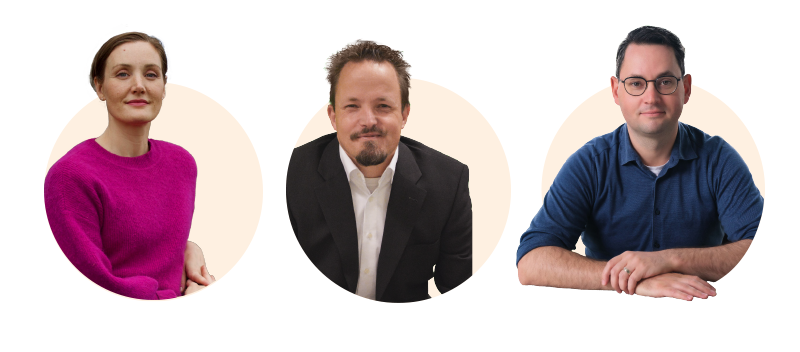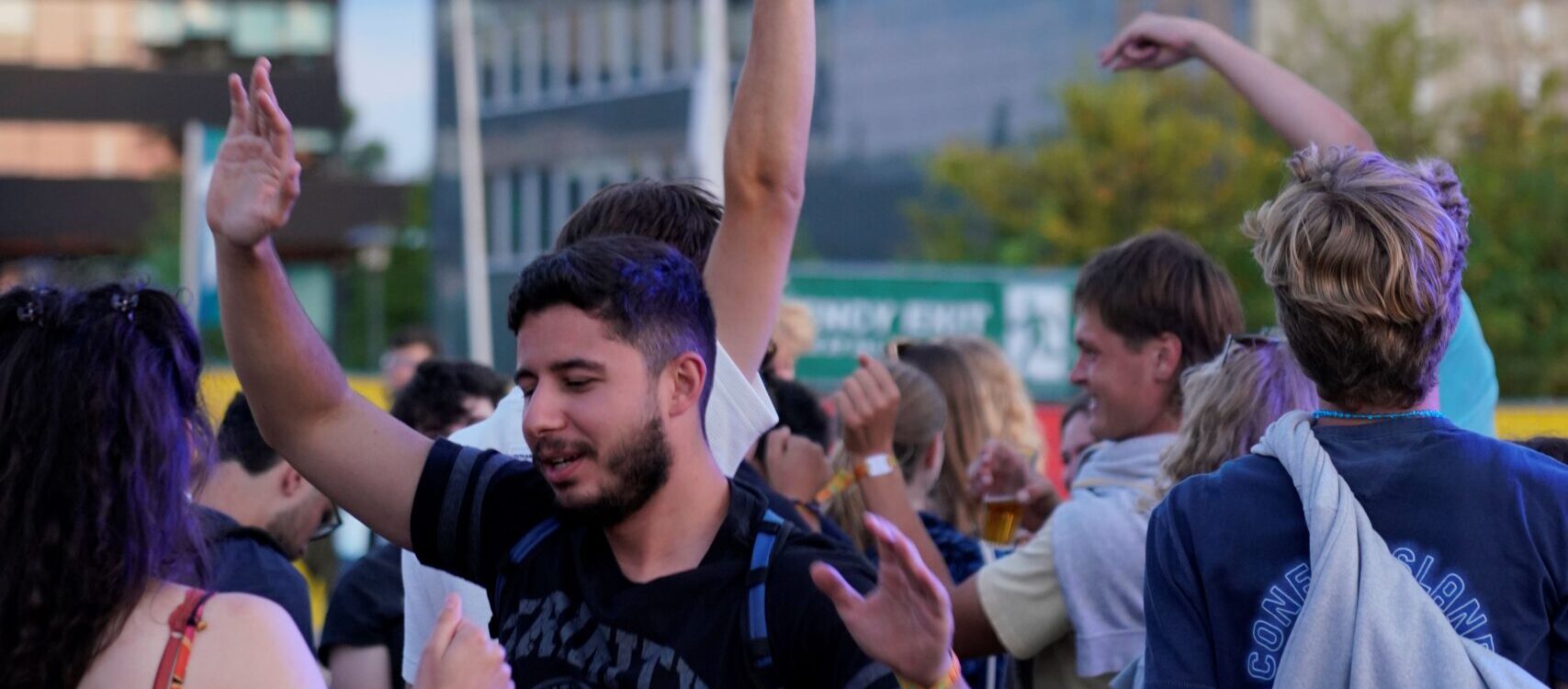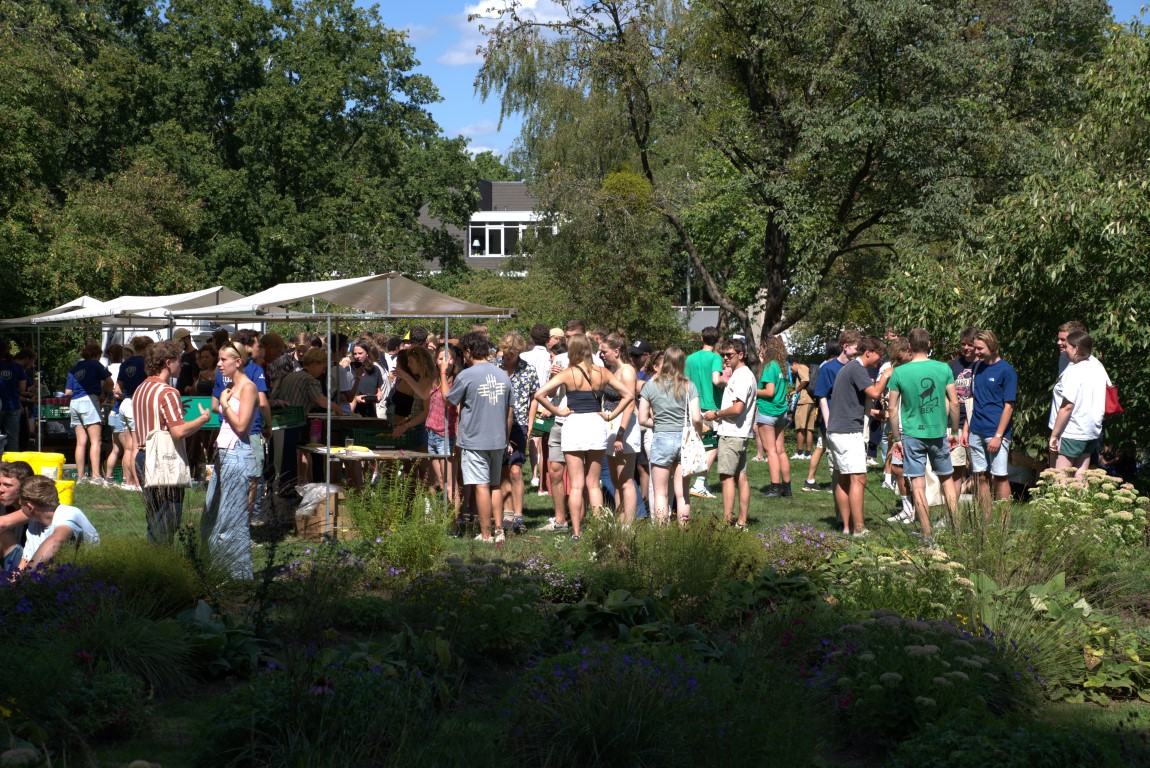Sweaty hands from exam stress or no social life because you’ve fallen behind in your reading? No need for that. Three lecturers give you tips on how to make a success of studying and still get the most out of your student days.
Jessica Duncan – associate professor of Rural Sociology
1. Read the course guide. Maybe it’s a bit obvious, but lots of students don’t read the course guide! The course guide is literally the plan for the course. It tells you what the course is about and what is expected from you. You have so much going on in addition to your studies, so the better you understand what you have to do and when you have to hand in assignments, the better you can plan things. To test who actually reads the course guide, I might put in something like: ‘If you read this sentence, send me a picture of your favourite food’. Maybe half of the students do that.
2. Take the reading seriously. Reading can be overwhelming. I get it. But reading is key to learning and reading academic work is also an important skill that can serve you far beyond your degree. It is so important to keep up with the reading, ask questions about what you read, and try to understand why you’re reading what you’re reading.
3. Ask questions, but show that you’re trying to understand. They say dumb questions don’t exist, but if the answer to your question is in the course guide, it is a dumb question. That said, if you don’t understand a concept or you need extra clarity, ask your teacher about it. Be sure to show them that you have tried to answer the question yourself, and explain what part you don’t understand.
4. Be curious when selecting your courses. At Wageningen you have the opportunity to try out so many different things. Do that. Get out of your comfort zone. It brings new perspectives to you as a student.
5. Deal with stress. Transitioning to a new stage of life can be tough, so find healthy ways to deal with the stress. The university has support available in the form of student psychologists, study advisers, student deans, confidential advisers and more. If you feel overwhelmed, find someone to talk to, for example via the Student Service Centre. It’s the bravest thing you can do!
6. Learn about AI. Academia is changing and must respond to developments like the rise of AI. We are all learning while doing at this point. Programmes like ChatGPT present so many opportunities but also risks. Do not use them blindly. Learn about them. Engage critically with them. And, more importantly, be transparent about how you use them. Do not rely on them to write your assignments (it will likely backfire), but seek out ways to use them to help you expand your engagement with scientific literature.
Perry den Brok – professor of Education and Learning Science
1. Study regularly. Research shows that it is often better to learn small amounts frequently than cram really hard for an exam in one go because you forget most of it afterwards. You might be able to pass your exams with some last-minute revision but hopefully you came to university to genuinely learn something. So it’s good if you haven’t then forgotten it all again one week after the exam.
2. Check exam designs. The next tip is actually rather a bad one… but there are some books, for example Test Heroes, that explain how teachers create exams. If you know how exams are designed, you will have a better idea of what to do to pass them.
3. Think about the long term. What do you want to get out of your degree and what do you want to do later? The possibilities sometimes seem endless so it’s a good idea to figure out what direction you want to go in. For example, are you more interested in the research side or the commercial side?
4. You don’t just learn things in lectures. Try and find out more about your degree subject outside your courses. Watch films, go to talks or try out something in practice that you learned in lectures.
Philippe Puylaert – Microbiology teacher
1. Not fun. There are many compulsory introductory courses that you may not all like equally. Prepare yourself for this, and don’t let the fact that you saw many practicals during the open days. Unfortunately, that is not your everyday reality. Your first-year courses lay the necessary foundation for the rest of your study programme.
2. Saying no. Associations and clubs are great for meeting people. But don’t be afraid to say ‘no’. You came to Wageningen to study. One or two things in addition to your studies is fine, but three or more will impact your results.
3. 9 to 5. View your studies as a nine-to-five job. Spend the time between 8.20 a.m. (when lectures start) and 17.00 p.m. on your coursework. After that, you can do as you like. If you have a day with no classes, this does not mean you are free. These days are intended for self-study
4. Stay in the present. The most important thing during your studies is your next exam. Students frequently focus on graduation or start their master’s or internship. They focus on their job after graduating. Don’t forget that doing all those things requires you to pass your exams first. If you fail, you will have to resit, which will only delay you in taking all those follow-up steps.
5. Garbage bags. Never economise on garbage bags. Believe me, the last thing you want is a bag popping open as you descend the stairs. I can assure you, from personal experience, that this mistake is not worth repeating. KOMO garbage bags it is!

 Lef to right: Jessica Duncan, Perry den Brok en Philippe Puylaert.
Lef to right: Jessica Duncan, Perry den Brok en Philippe Puylaert. 

